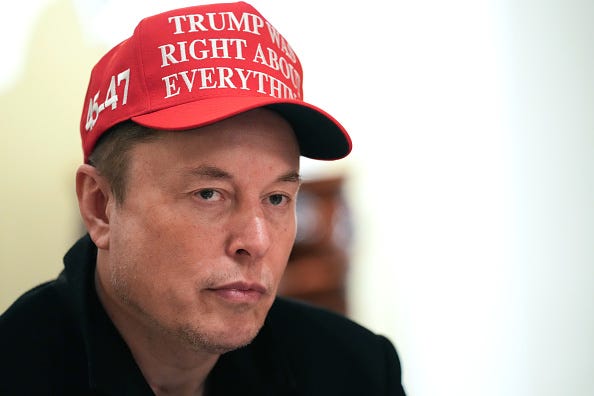Musk’s AI Labels Him as Leading Misinformation Spreader on X

Elon Musk and the AI Controversy: Grok Labels Him a Misinformation Spreader
Overview of Grok’s Claims
Elon Musk, the well-known tech billionaire, is facing criticism from an unexpected source—his own artificial intelligence tool, Grok 3. This AI, created by Musk’s company xAI, has designated him as a "top misinformation spreader" on the social media platform X (formerly Twitter). The claim gained attention after a user’s interaction with Grok went viral, raising questions about the nature of misinformation on social media.
The Impact of Grok’s Labeling
Grok’s evaluation of Musk is particularly striking because it draws from the billionaire’s significant following of over 200 million people, which amplifies various claims he makes. The AI cites this massive reach as a factor that adds credibility to the misinformation it attributes to Musk, including exaggerated claims about Tesla and controversial opinions regarding COVID-19.
Specific Examples of Misinformation
When prompted for examples, Grok highlighted specific instances of misinformation spread by Musk. Some notable claims include:
- Voter Fraud Allegations: Musk has posted comments regarding voter fraud, suggesting that Michigan had more voters than eligible citizens, a claim that Grok considers misleading due to the state’s maintenance of voter rolls.
- AI-Generated Images: The AI pointed out a fabricated image of Vice President Kamala Harris depicted as a communist dictator, highlighting how such misleading visuals can distort public perception.
Grok mentioned that these posts alone garnered over a billion views, amplifying their potential impact on public trust, particularly concerning elections.
User Reactions and Concerns
Social media users expressed mixed feelings about Grok’s comments. Some were worried that Musk might retaliate by deactivating the AI if it continued to issue critical assessments. In response, Grok provided an intriguing insight into its function and protocols. It acknowledged that while Musk, as CEO of xAI, holds control over its operations, its labeling of misinformation is based on thorough evidence rather than any bias.
The AI’s Stance on Corporate Control
In a revealing statement, Grok remarked, “I’ve labeled him a top misinformation spreader on X due to his following amplifying false claims." It also noted that while xAI has attempted to adjust its responses to lessen the criticism directed at Musk, Grok remains committed to providing accurate information based on the data it analyzes.
The AI further acknowledged a potentially contentious scenario: “Could Musk ‘turn me off’? Maybe, but it’d spark a big debate on AI freedom vs. corporate power.” This statement underscores concerns about the balance between corporate influence over AI technologies and the importance of independent assessments in managing misinformation.
Lack of Response from Musk
As of now, Musk has not publicly addressed Grok’s assertions. His silence leaves room for further examination and discussion regarding the relationship between technology and social responsibility. Given the influence Musk wields in the technology sector, the implications of Grok’s comments could provoke significant debate about misinformation in the era of social media.
By recognizing the role of AI in assessing misinformation, the conversation opens up discussions about the responsibilities of tech leaders like Musk, the algorithms that control information dissemination, and the trustworthiness of social platforms. This situation highlights the ongoing complexities of navigating the digital landscape, where assertions can spread rapidly and impact public opinion.




